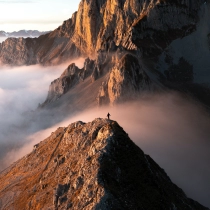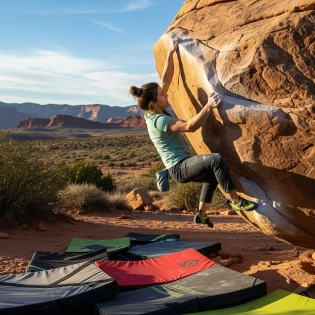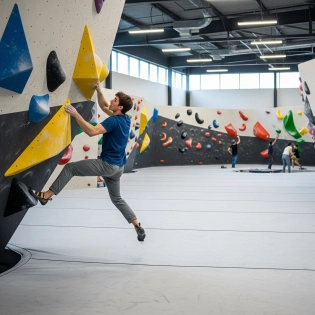When rock climbing, there are certain actions or behaviors that should be avoided to ensure safety and maintain a positive climbing experience. Here are some things you should not do when rock climbing:
-
Neglect Safety Precautions: Never compromise on safety. Don't skip wearing a helmet, neglect to double-check knots and gear, or disregard proper belaying techniques. Always prioritize safety protocols to prevent accidents or injuries.
-
Climb Beyond Your Abilities: Avoid attempting climbs that are significantly beyond your skill level or physical capabilities. Pushing your limits is important, but it should be done gradually and with proper preparation. Climbing well within your abilities helps reduce the risk of accidents.
-
Ignore Environmental Impact: Don't damage the rock or surrounding environment. Avoid chipping or altering the rock, removing vegetation, or leaving behind any trash. Follow Leave No Trace principles and respect the natural surroundings.
-
Disrespect Climbing Ethics: Familiarize yourself with the climbing ethics and guidelines of the area you're climbing in. Don't deviate from established routes, ignore access restrictions, or engage in behavior that negatively impacts the climbing community or local regulations.
-
Disturb Others: Be mindful of noise levels and avoid disturbing others in the climbing area. Respect the space and the experience of fellow climbers by being considerate, following communication etiquette, and maintaining a positive and supportive environment.
-
Compete Unsafely: While friendly competition can be motivating, avoid engaging in unsafe or reckless behavior to outperform others. Climbing should prioritize safety and personal growth rather than unnecessary risks or comparisons.
-
Overlook Hydration and Nutrition: Don't neglect your body's needs while climbing. Stay hydrated, maintain proper nutrition, and listen to your body's signals to avoid dehydration, exhaustion, or loss of focus.
-
Neglect Continuous Learning: Avoid stagnation in your climbing skills and knowledge. Don't assume you know everything or stop seeking opportunities to learn and improve. Stay open to new techniques, safety practices, and learning from experienced climbers.
By avoiding these behaviors, you can help create a safer and more enjoyable climbing experience for yourself and those around you. Always prioritize safety, respect, and responsible climbing practices.

















